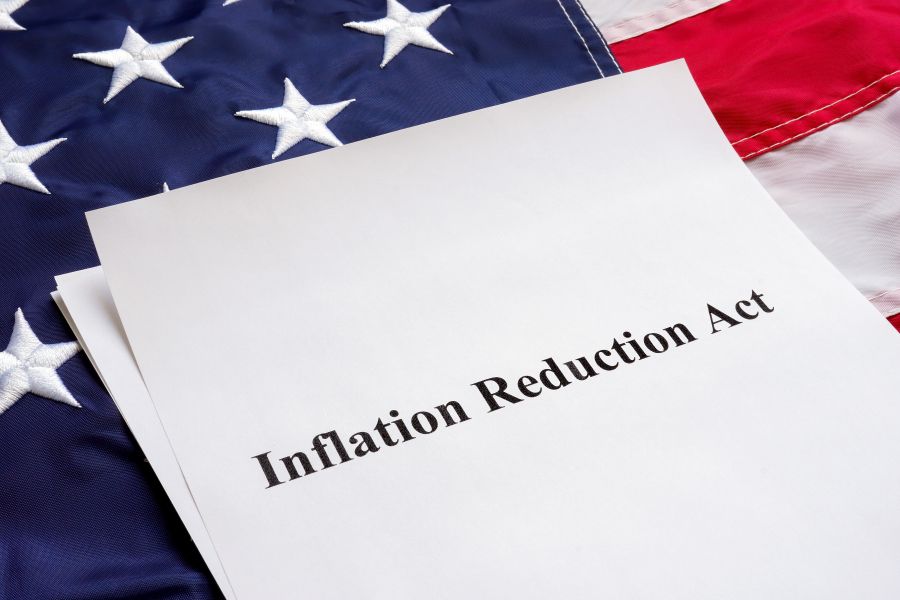President Biden Signs the Inflation Reduction Act of 2022

On 8/16/22, President Biden signed into law the so-called Inflation Reduction Act of 2022 (H.R. 5376). In a statement earlier, the White House said, “President Biden and Congressional Democrats have worked together to deliver a historic legislative achievement that defeats special interests, delivers for American families, and grows the economy from the bottom up and middle out”. The White House is also planning an event on 9/6/22 to celebrate the enactment of the bill.
The $740 billion Act is projected to raise revenue via a new 15% minimum tax on large, profitable corporations and a 1% excise tax on stock buybacks, to achieve the Democrats goal of using the budget reconciliation measure to reduce the U.S. annual deficit (i.e. not the National Debt) by approximately $300 billion.
Other ways that the Act generates revenue is from stricter IRS enforcement of tax compliance. At $45.6 billion, enforcement-related funds, comprise more than half of the total $80 billion in additional appropriations. The IRS has made known it’s mission to reduce the tax gap by improving its ability to generate revenue from taxes that might otherwise not be collected.
The social spending element of the Act would also:
- extend for an additional 3 years the American Rescue Plan Act’s expanded subsidies for coverage purchased through the Health Insurance Marketplaces;
- afford Medicare the ability to negotiate prices for insulin and certain other drugs; and
- implement changes to tax law and spending subsidies to address climate change.
Thomson Reuters has issued an Executive Summary of the Inflation Reduction Act of 2022 (H.R. 5376) available here:
Thomson Reuters Executive Summary – Inflation Reduction Act of 2022
In summary, the Act, among other things:
- Assesses a 15% corporate alternative minimum tax on large corporations
- Assesses a 1% excise tax on stock buybacks
- Extends/enhances tax credits for new and used clean (EV) vehicles
- Provides tax credits for the production of clean hydrogen
- Provides tax credits for the production of zero-emission nuclear power
- In addition to new taxes and credits, the Act allocates $80 billion to the IRS, $45.6 billion of which is earmarked primarily for enforcement.
Stay tuned for additional posts in the coming days to help explain specific provisions of the Act.
(This is Blog Post #1253)


